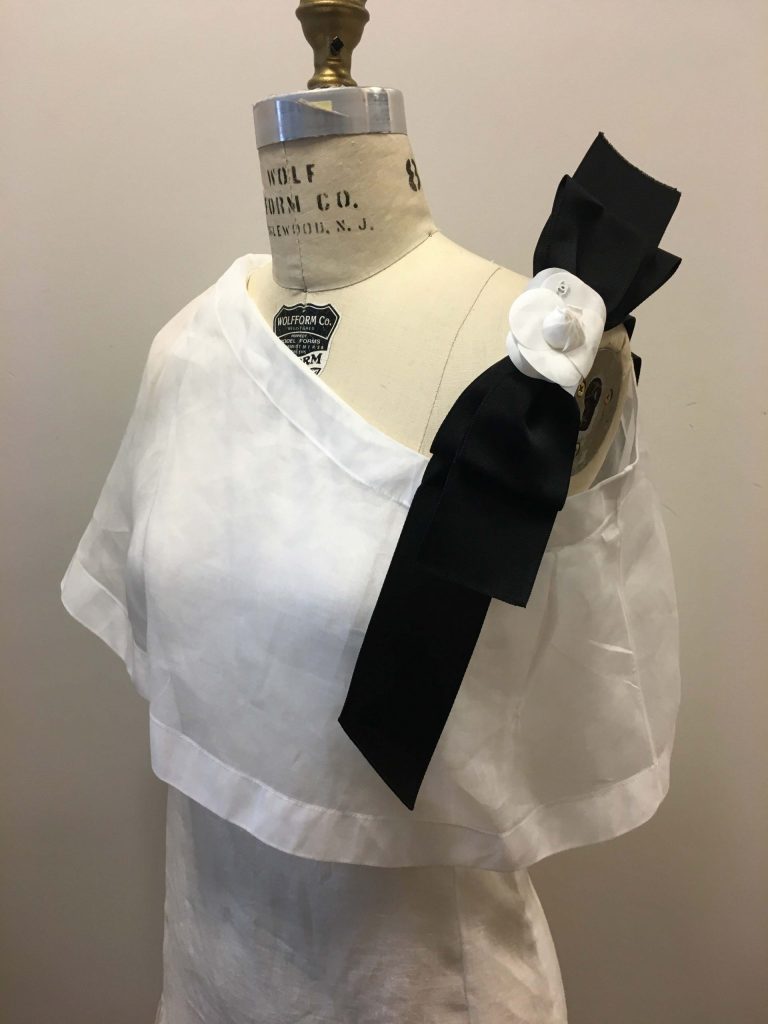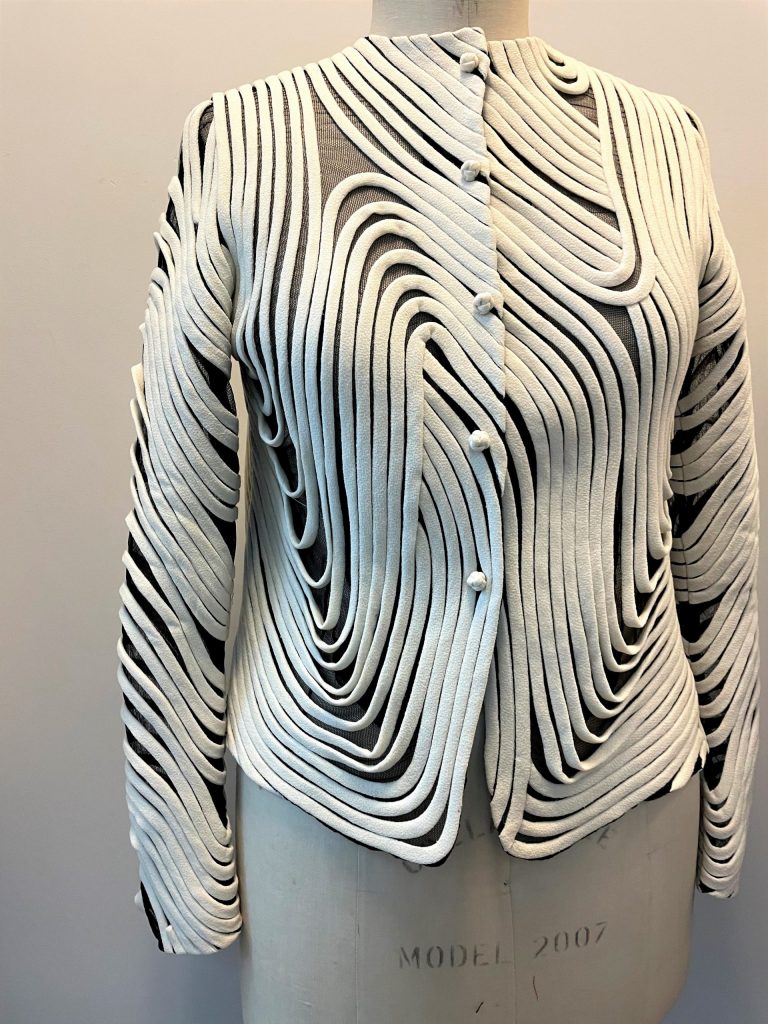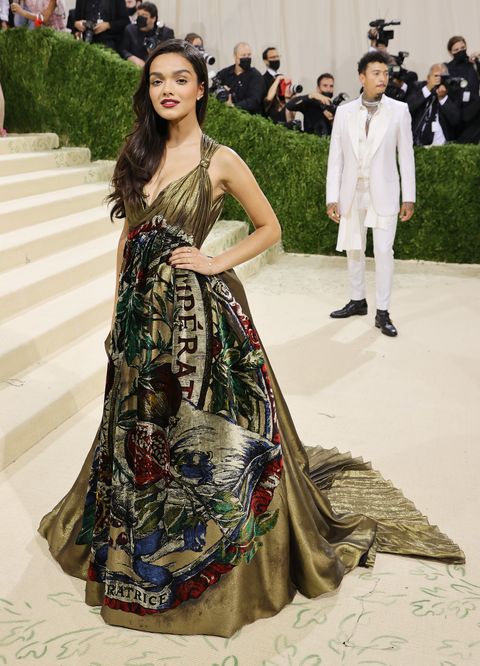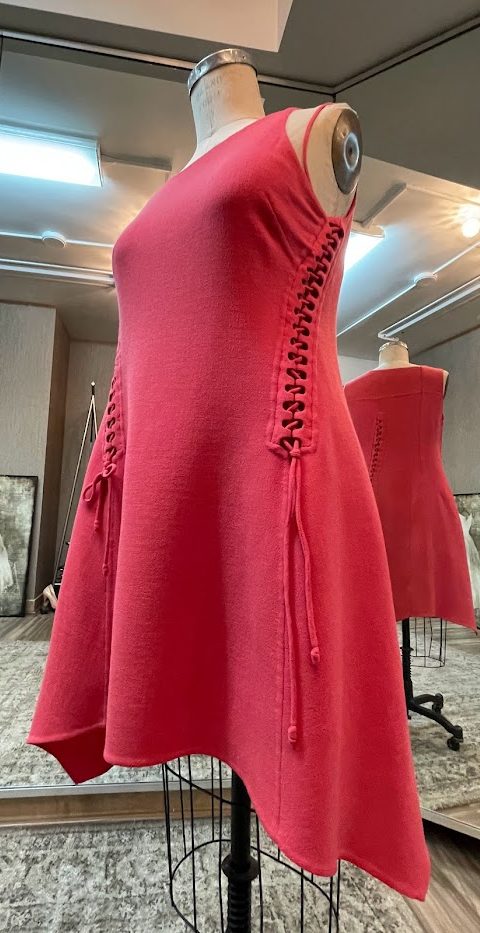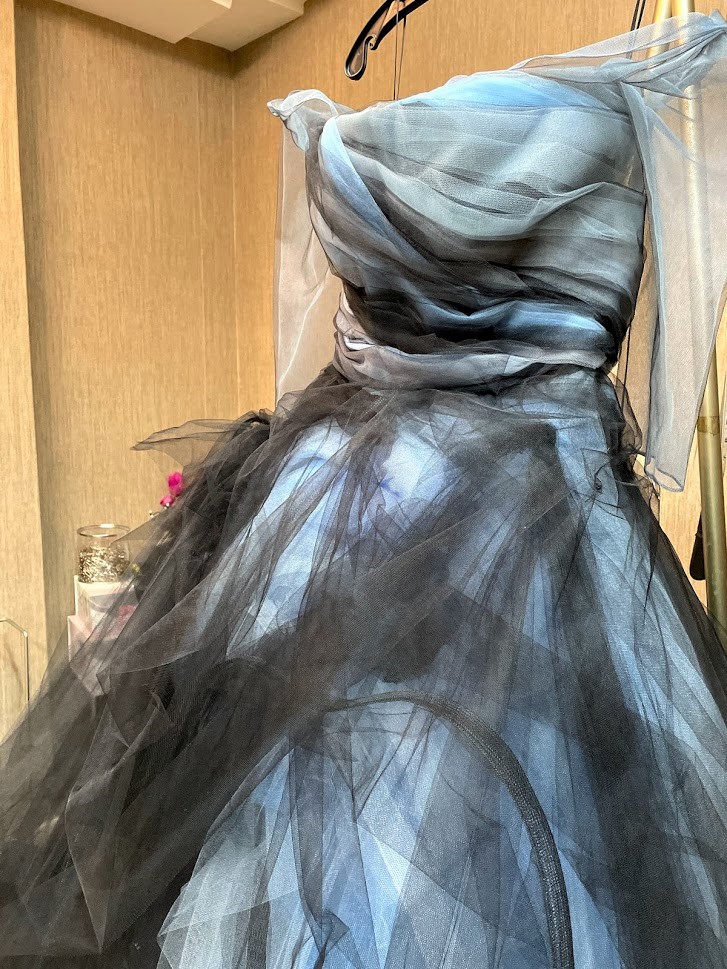INTRODUCTION
The artistry of tailoring is all together defined by the art of designing, cutting, fitting and finishing clothes.
The profession of tailoring dates back to the early Middle Ages in European towns where linen armorers would skillfully fit men with padded linen undergarments used to protect the interior of chain mail and plated armor. During that time, men’s clothing consisted of tunics and hosiery.
In the 1500 and 1600s, tailors were obliged to create a variety of outer wear garments that included capes, cloaks and coats. They used stiff linen and canvas for interlining to give clothing shapes and even used whalebone for stiffer elements such as corsets until the 19th century.
Luxury garments were lined with finer quality material such as fur or satin at the time. Tailors in the 1800s would create trousers, waistcoats and sportswear by that time. Wool was a staple fabric in menswear which replaced the use of silks and velvet fabrics used in previous centuries. Wool to this day is a staple fabric for many custom suits for both menswear and womenswear.
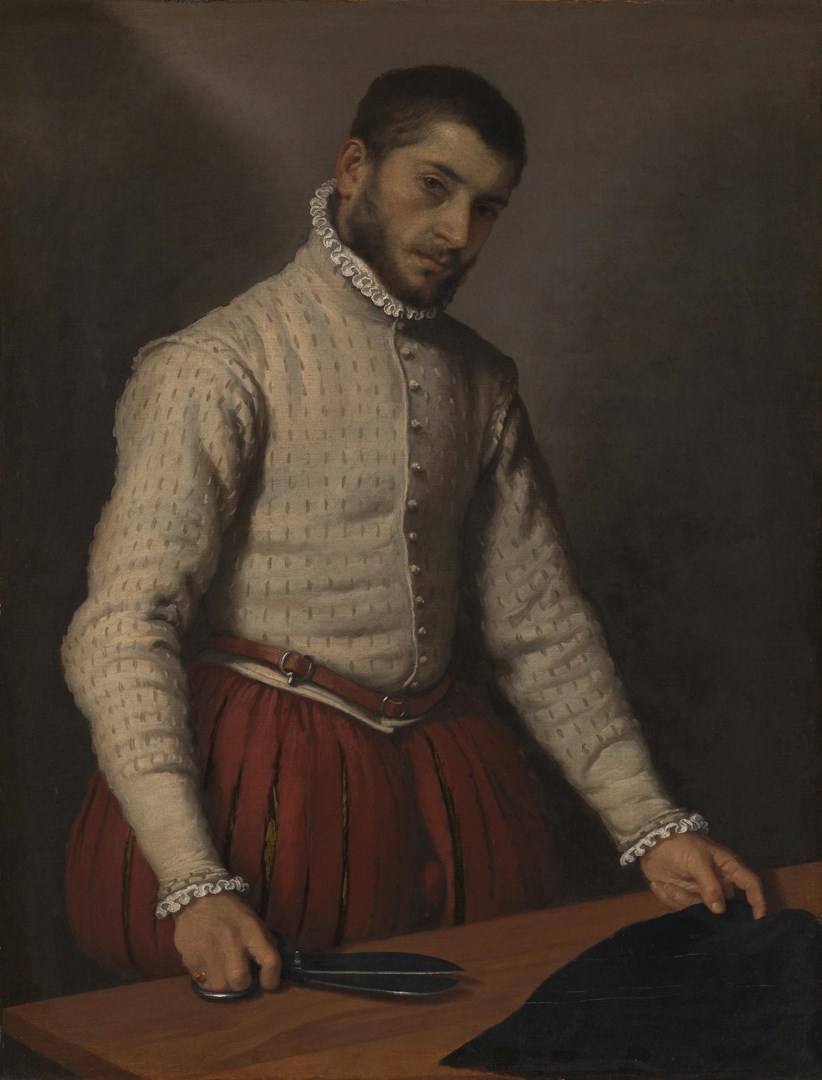
G. B. Moroni’s painting titled as The Tailor, 1570.
The trade of tailoring was taught by a traditional apprentice education in workshops.
The workshops consisted of several employees of the trade established with various work titles, from fabric cutters, which was considered as one of the most skilled tier of the trades. There were also journeymen who were responsible for adding padding, sewing in interlinings, pockets, sleeves and collars: they were also responsible for manipulating heavy irons. The apprentice ran errands and cleaned up after the fabric cutters and journeymen before being taught basic sewing skills.
After the first sewing machine was invented in 1790, machinists became available to the team of tailors.
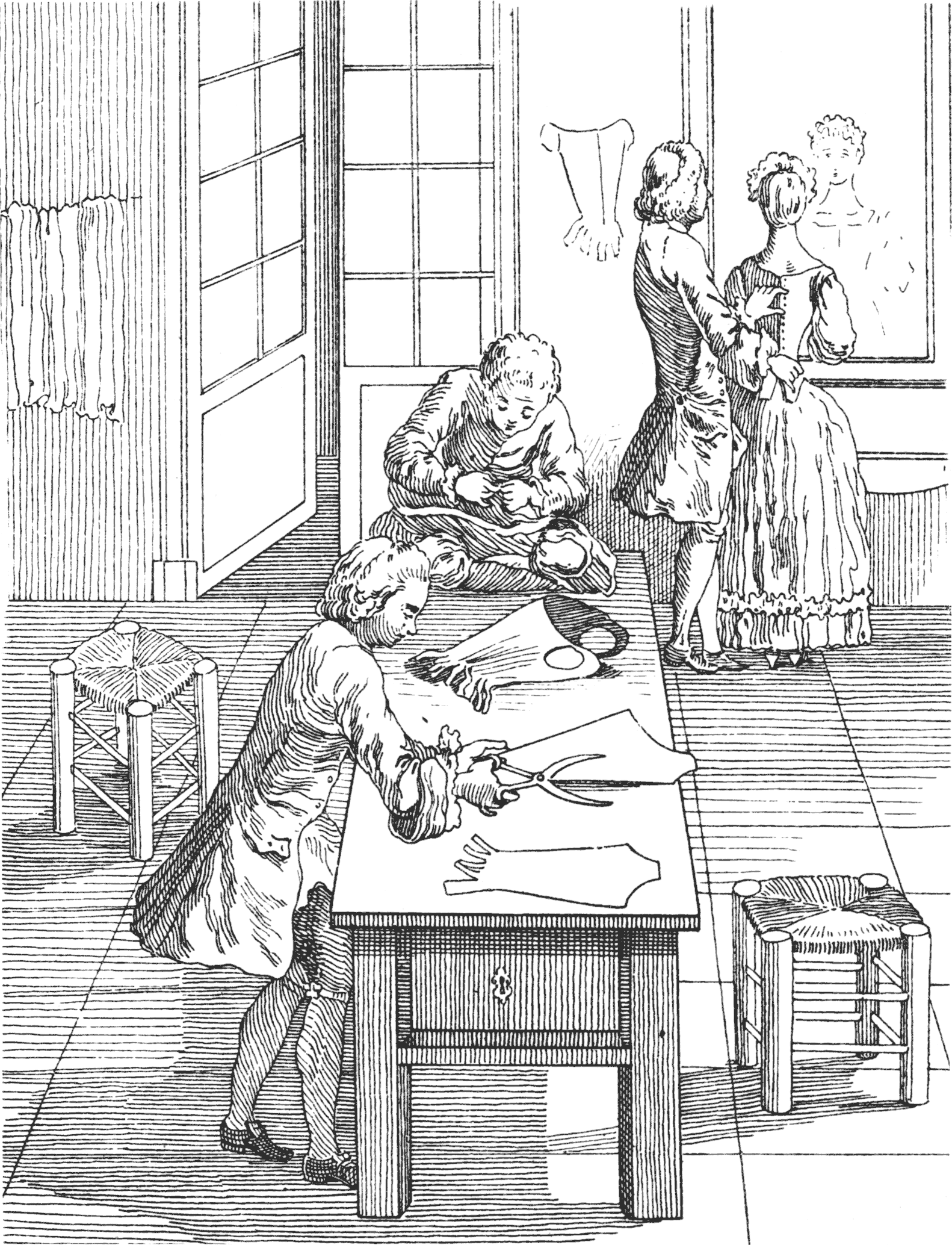
The technique of sewing in the studio was fashioned to sit on the floor cross-legged, hunched over while working in natural lighting, this was known as sitting in the tailor’s pose.
TAILOR MANUAL’S
Written manuals didn’t become established for the trade until the 1500s. The first established tailor manuals were published in 1589 which featured illustrations of drawing patterns, but no information on technique and assembling the patterns.
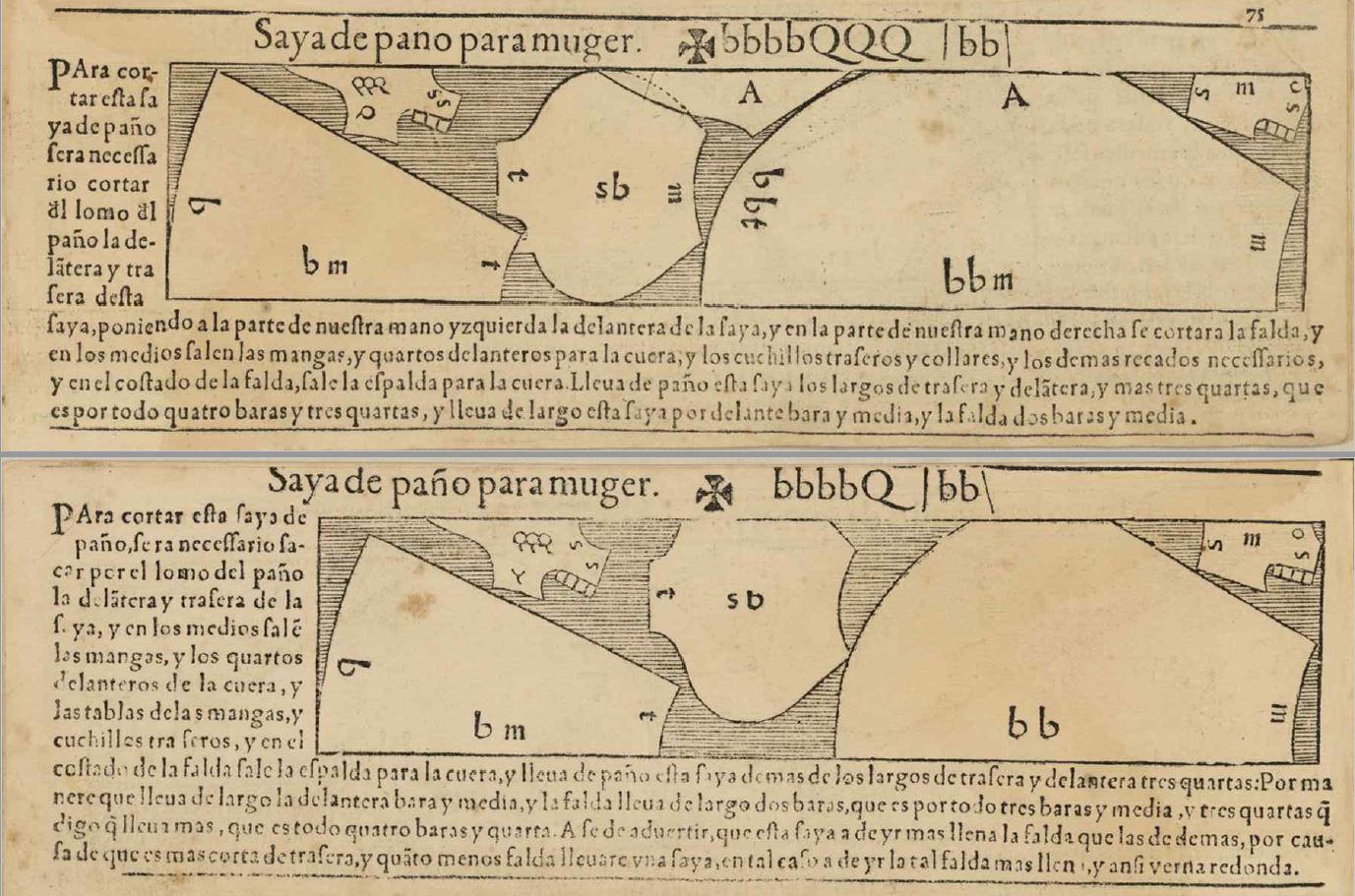
Tailor manual from 1580.
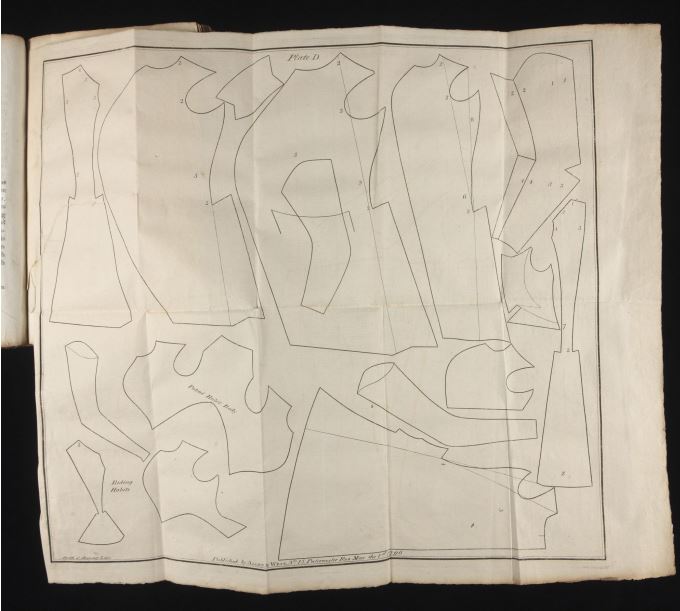
Illustrative pattern layout from L’art due Tailleur, 1796.
Later in 1769, the manual L’art du Tailleur (translates to the Art of Tailoring) by De Garsault was published in 1769 featured written instructions to measurement, cutting, fitting and overall construction of garments.
De Garsault would introduce the use of a tape measure using a strip of paper, where he used notches on the strip to mark the levels of the body.
MEASUREMENT TECHNOLOGY
With the innovation in tailoring, the system of measurement would radically change the technique and trade of tailoring. Tailoring by trade were given the challenging task of creating garments for a various of body shapes and sizes.
They developed complex systems for measuring the bodies of clients allowing clothes to move freely and fit comfortably. Tailors were expected to use the skill of being extremely observant by noting nuances of posture and anatomy that others wouldn’t be able to easily recognize.
The modernization of the tape measure was introduced in the 1800s which replaced the system of measuring in centimeters or inches rather than calculating the body in forms of units.
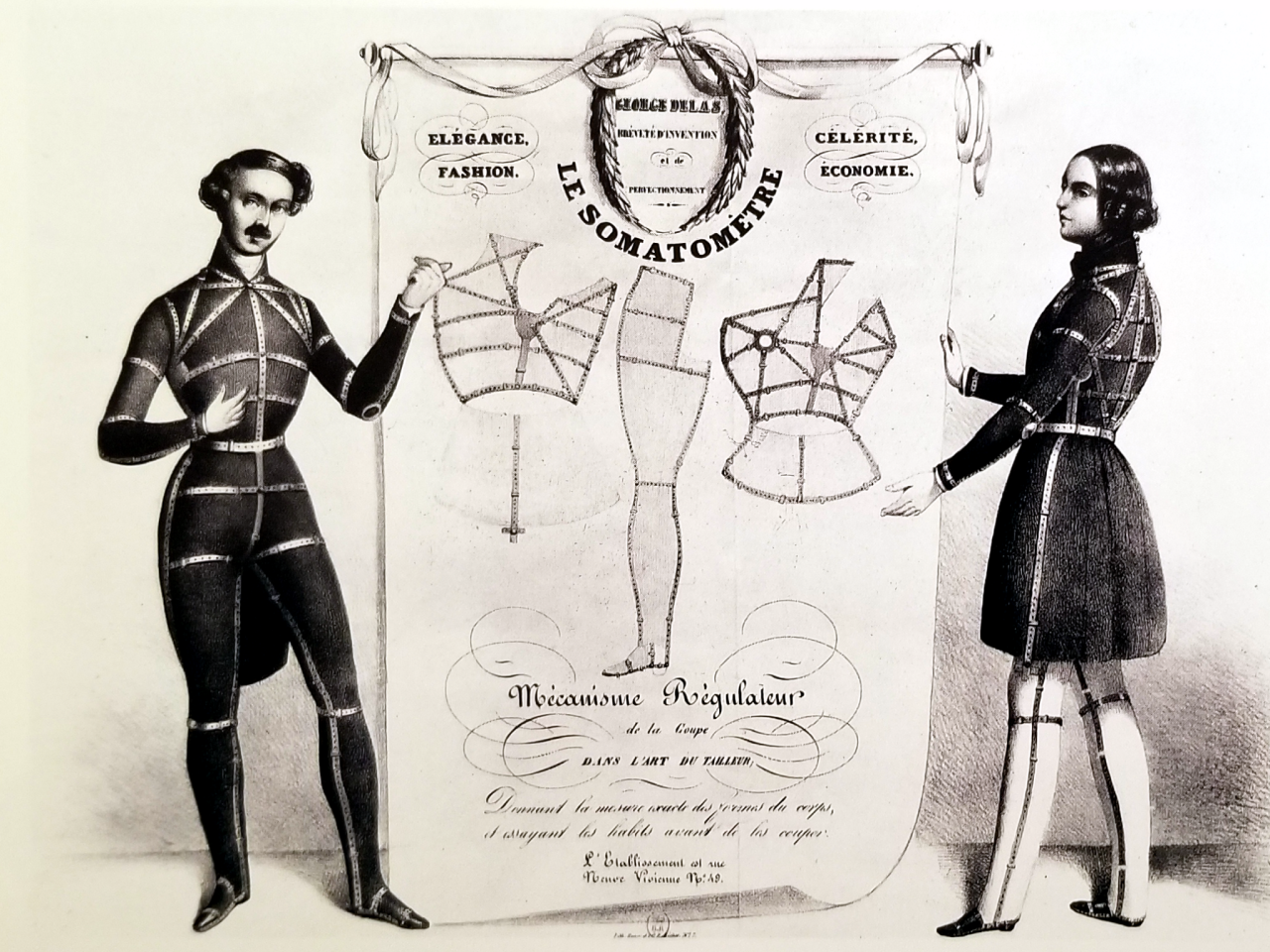
Other measurement systems included using an adjustable metal cage such as the Body Meter on 1839.
This introduced the use of designing clothes to standardized sizes which appropriated to different body types and sizes.
20th CENTURY TAILORING
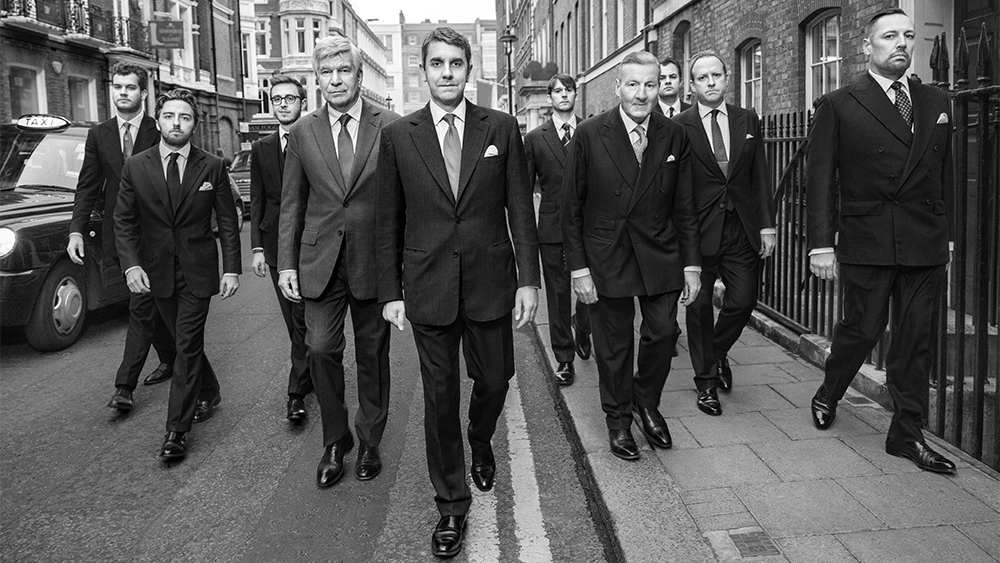
Savile Row is one of the most notable tailoring establishments since the turn of the 18th century. They shifted career paths when their clientele became international and began working with American financiers and Hollywood celebrities. Their tailoring was even featured in the 2014 feature films Huntsman: The Secret Service At Savile Row. They are credited to dressing Hollywood royalty such as Fred Astaire, Cary Grant, and Roger Moore.
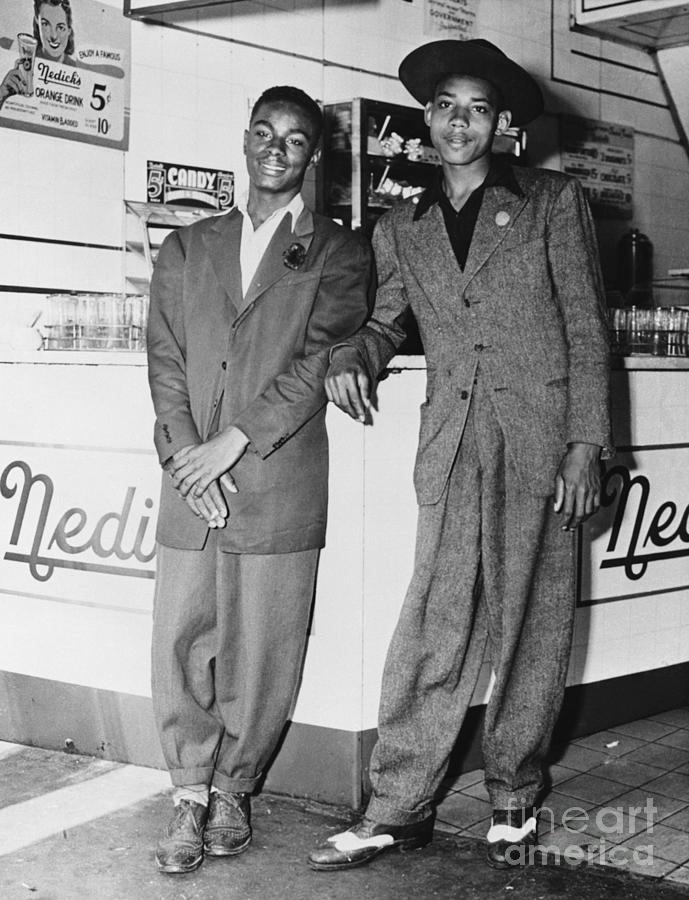
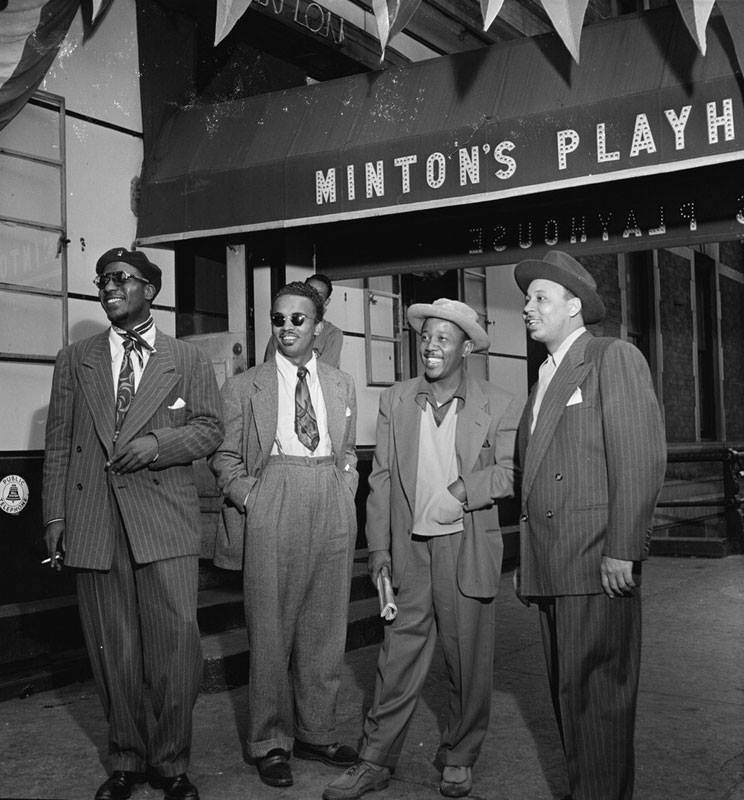
Although the reputation of Tailoring was celebrated in the United Kingdom and Europe, the impact of tailoring influenced menswear in America. Stylish young black men in Harlem during the 1930s wore suits that were constructed with oversized and exaggerated shapes with bright colors, formally known as the Zoot Suit.
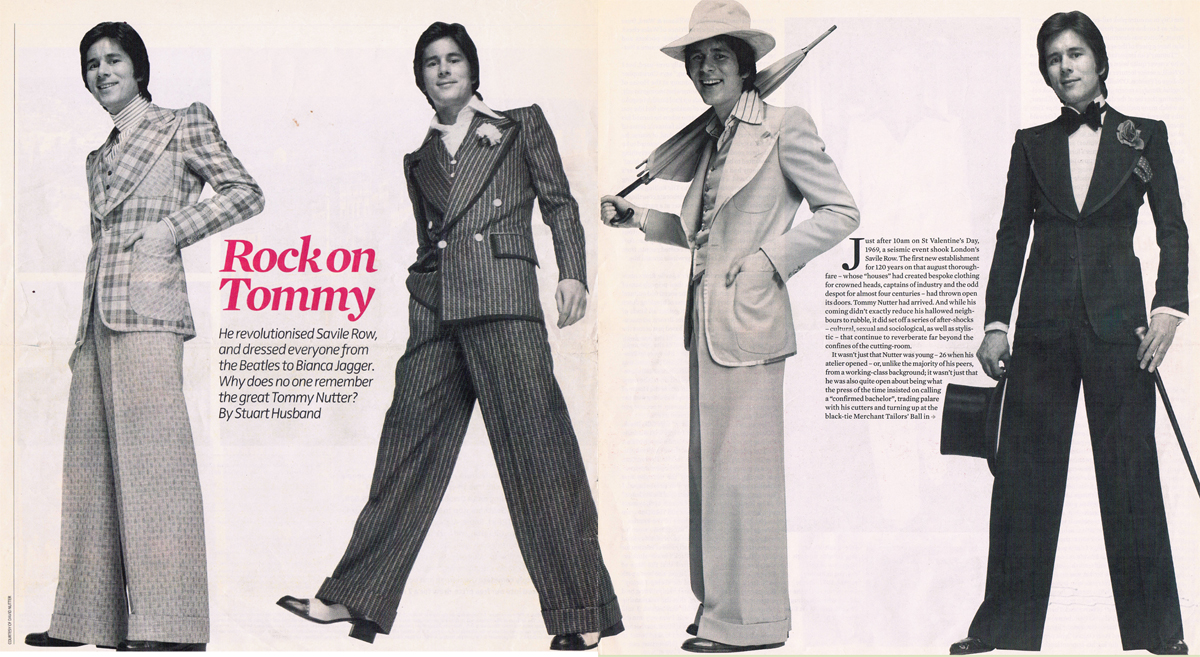
The 1960s fashion in Great Britain celebrated the revival of new silhouettes with the coined phrase” Peacock Revolution” which was heavily influenced by celebrity tailor Tommy Nutter. He formally learned his trade in Savile Row and created unique suits for both men and women dressing for the Beatles, Bianca Jagger and Twiggy.
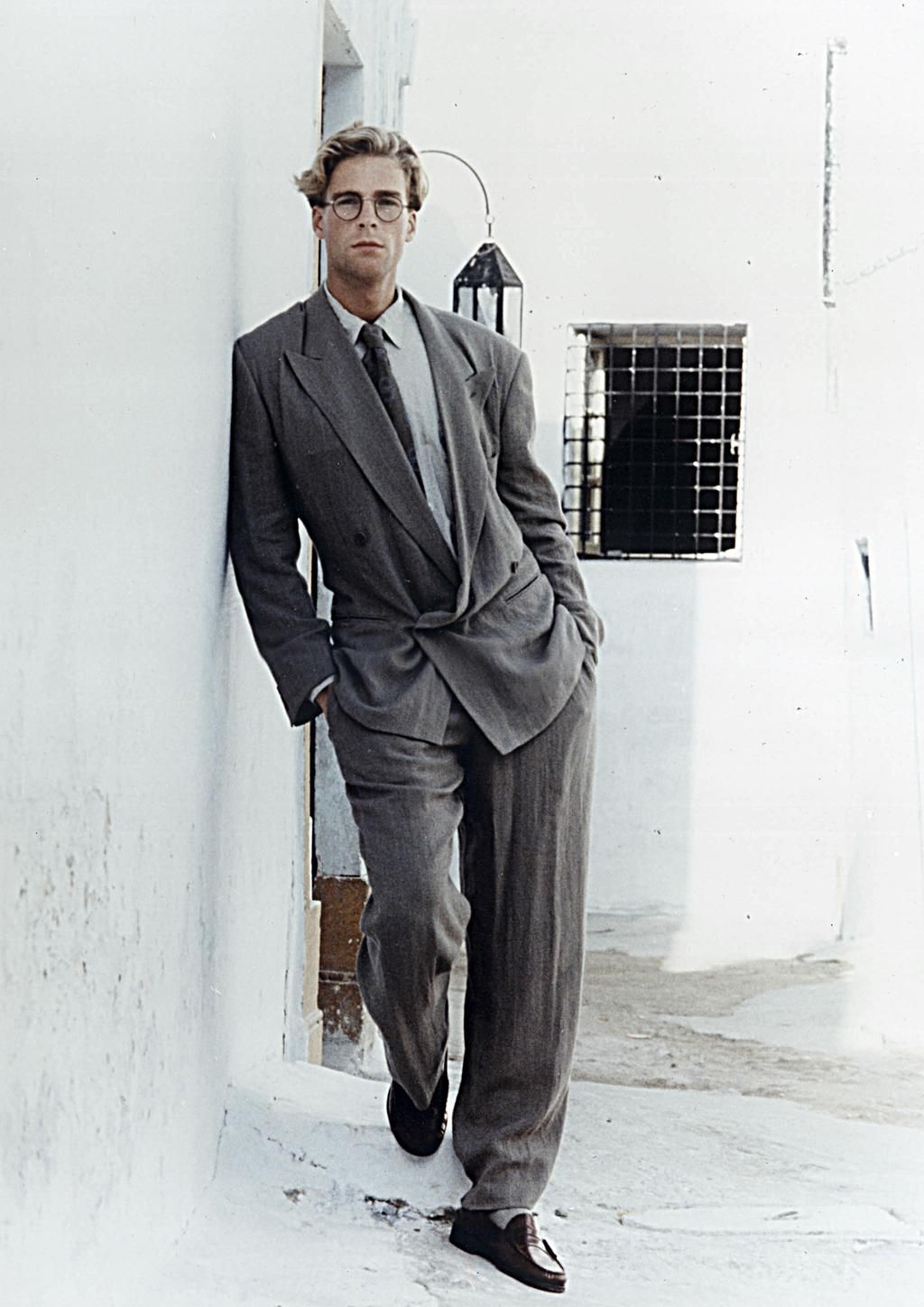
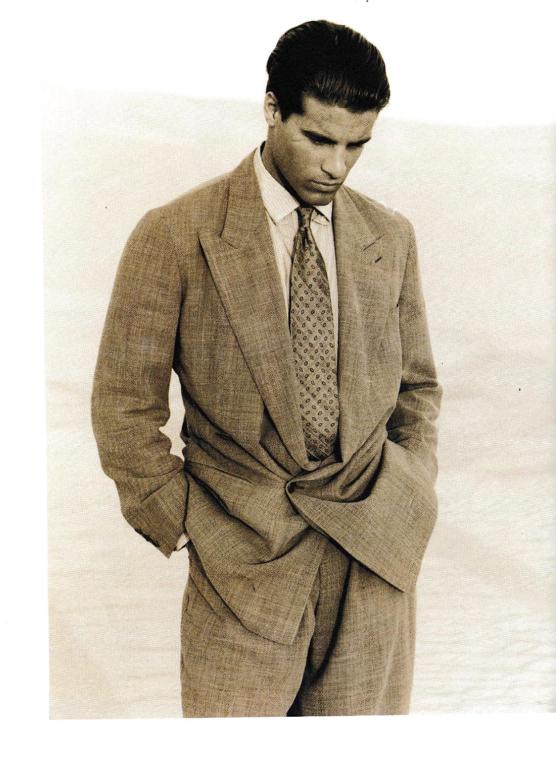
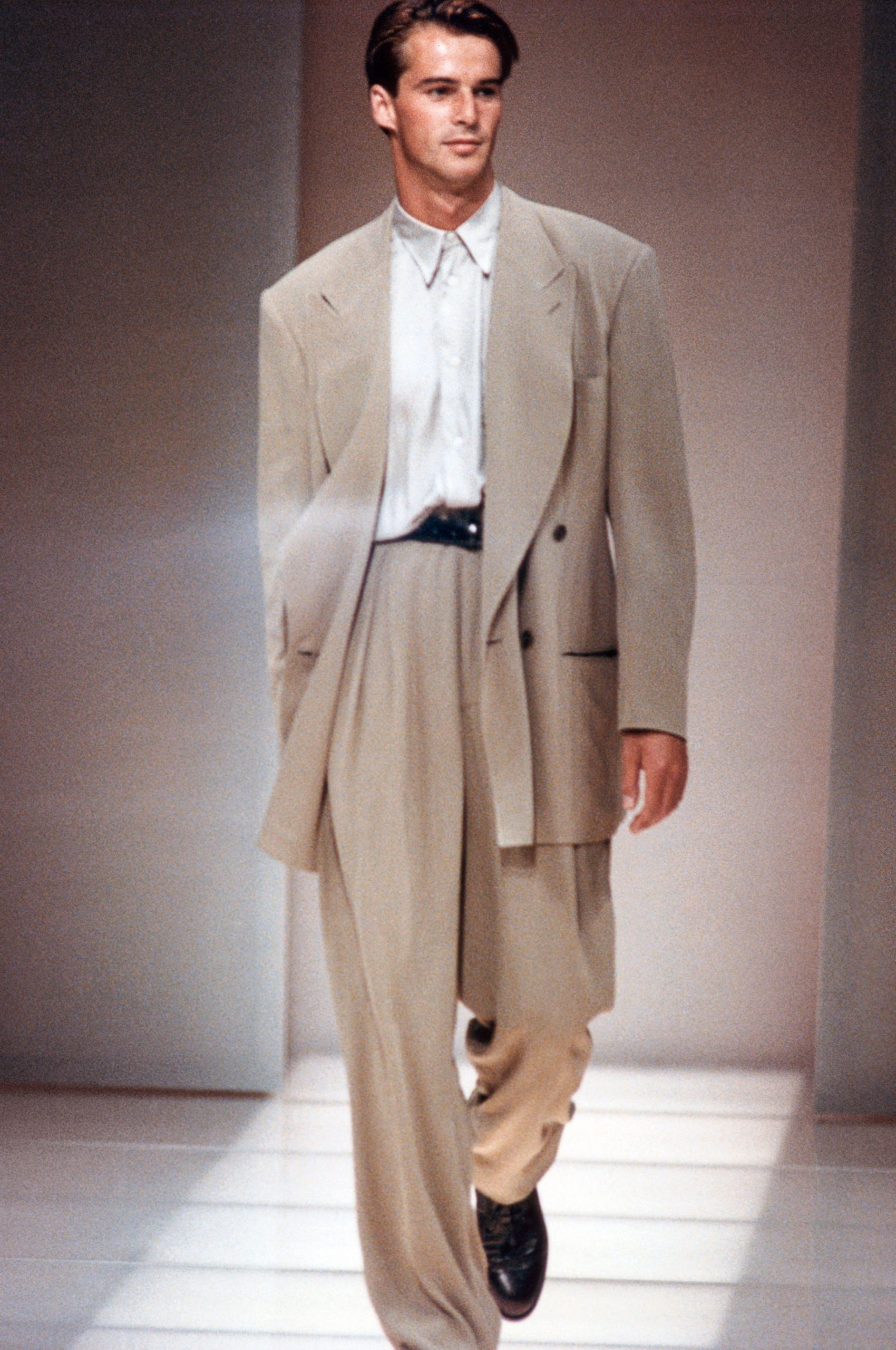
In the 1980s, Italian tailoring became trendy among both men and women in fashion. With the aesthetic of the oversize unstructured suits, designers like Giorgio Armani designed lightweight suits with oversized jackets and loose fitted pants.
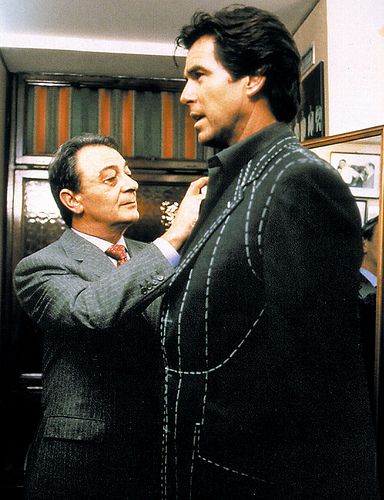
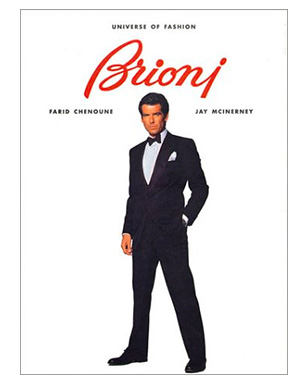
In the mid 1990s to early 200s, Italian tailoring was praised and celebrated in feature films. Notable tailoring firm, Brioni, dressed movie icon, Pierce Brosnan in the James Bond series.
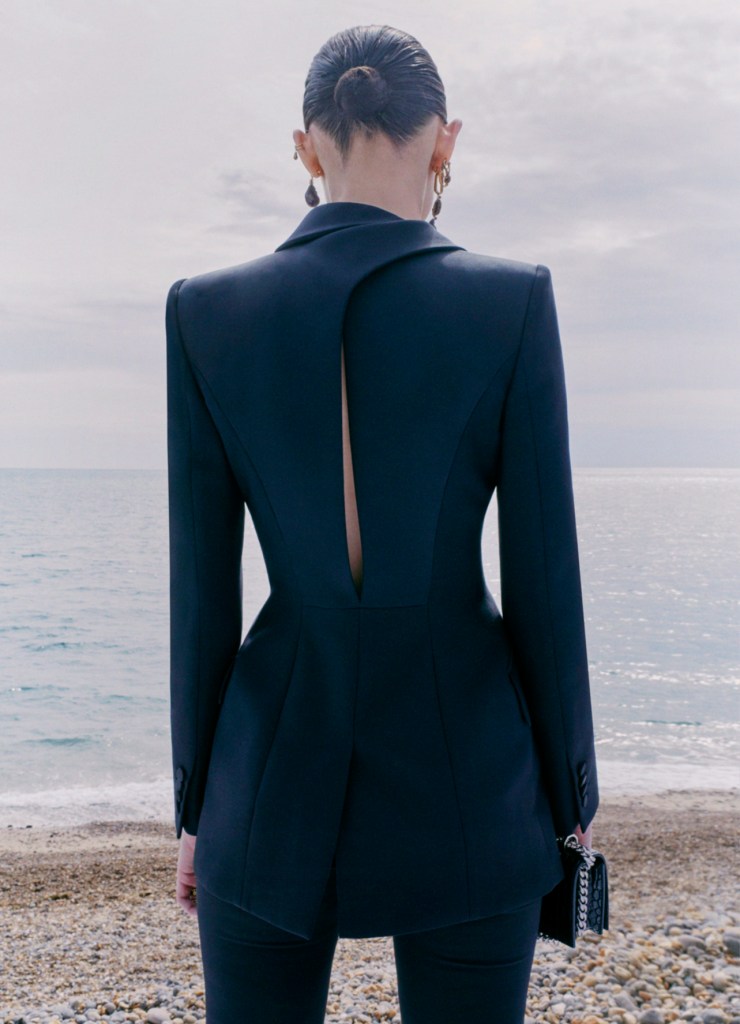
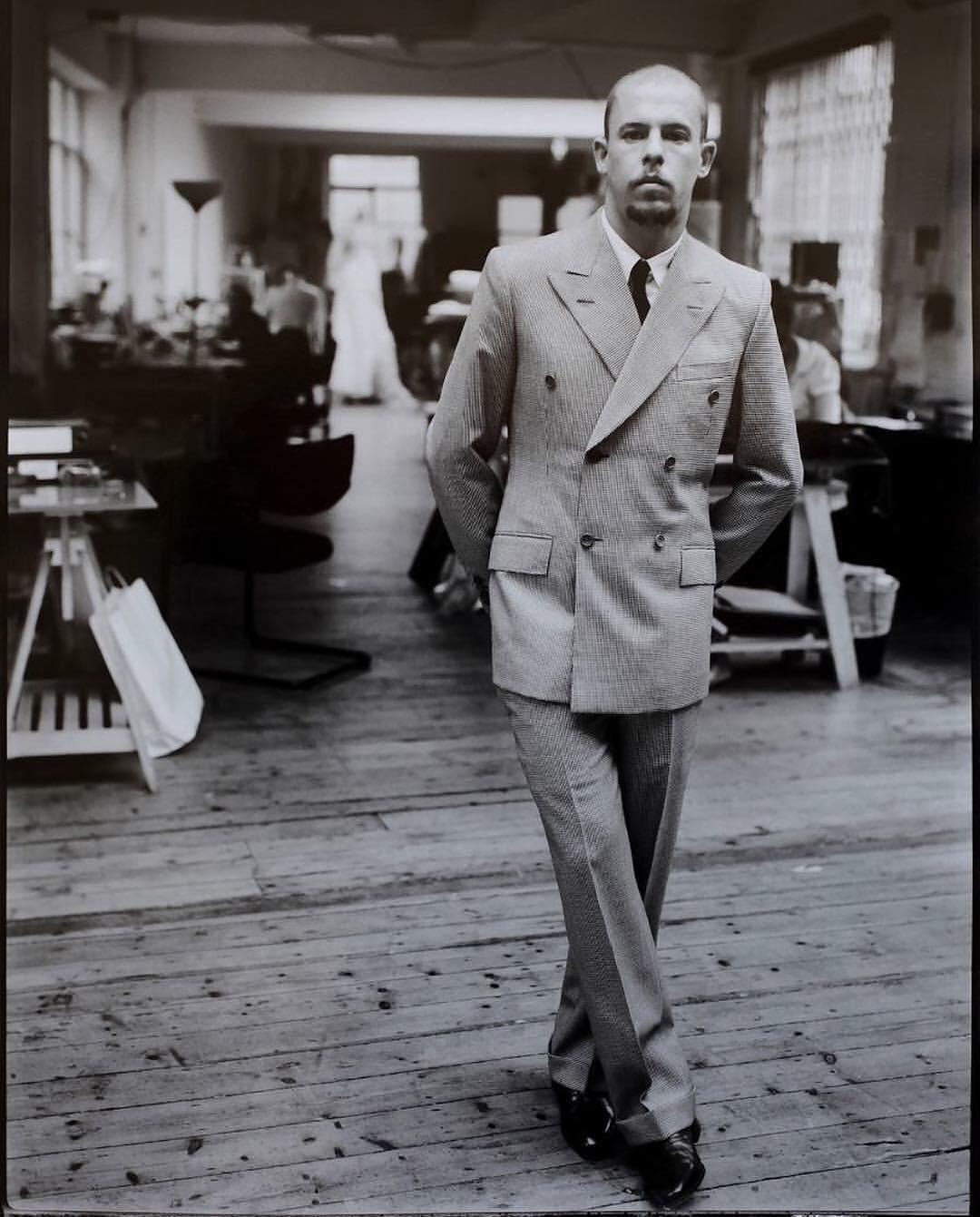
Alexander McQueen was of the most notable designers who was influenced by tailoring. He trained for 2 years at Savile Row and built a legacy of impeccably tailored designs and influence of bespoke suiting. His work is still celebrated through the rebranding of Sarah Burton in their most current collections.
The industry of bespoke tailoring and custom clothing is not what it used to be back in the 18th century. Having a custom suit made for you in unlike buying any ready to wear item purchased at a store. The individual attention to the craftmanship with care results in a one of a kind piece that will last for many years.
At Luxtailor, we offer services for custom suits using the highest quality fabrics from Holland & Sherry, Zegna, to Loro Piana.
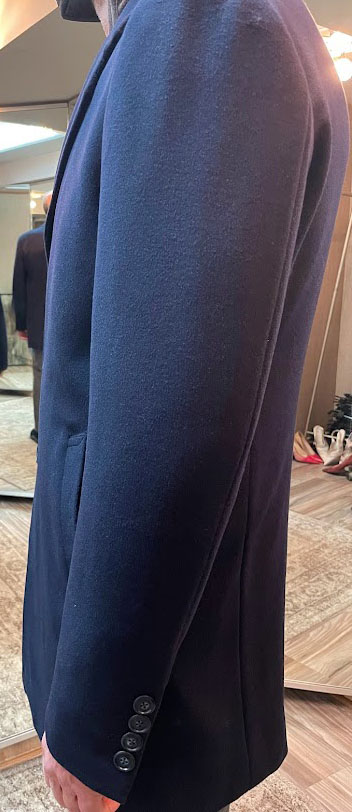
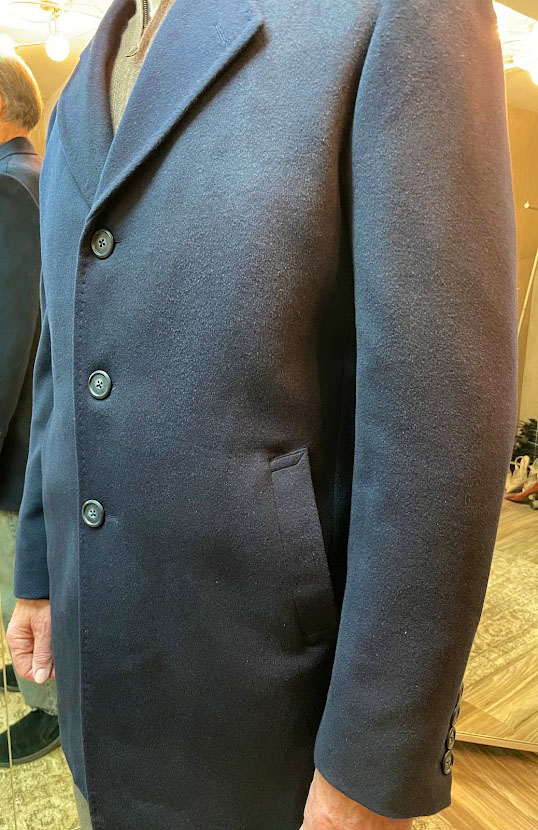
Custom peacoat was created using Zegna cashmere fabrics by Luxtailor.
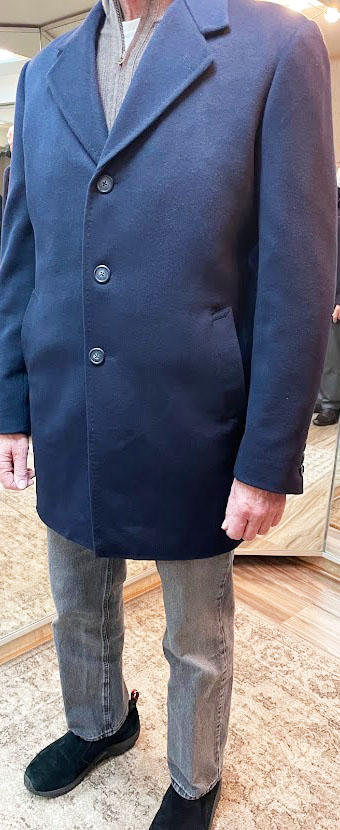
At Luxtailor, we offer services for custom suits using the highest quality fabrics from Holland & Sherry, Zegna, to Loro Piana.
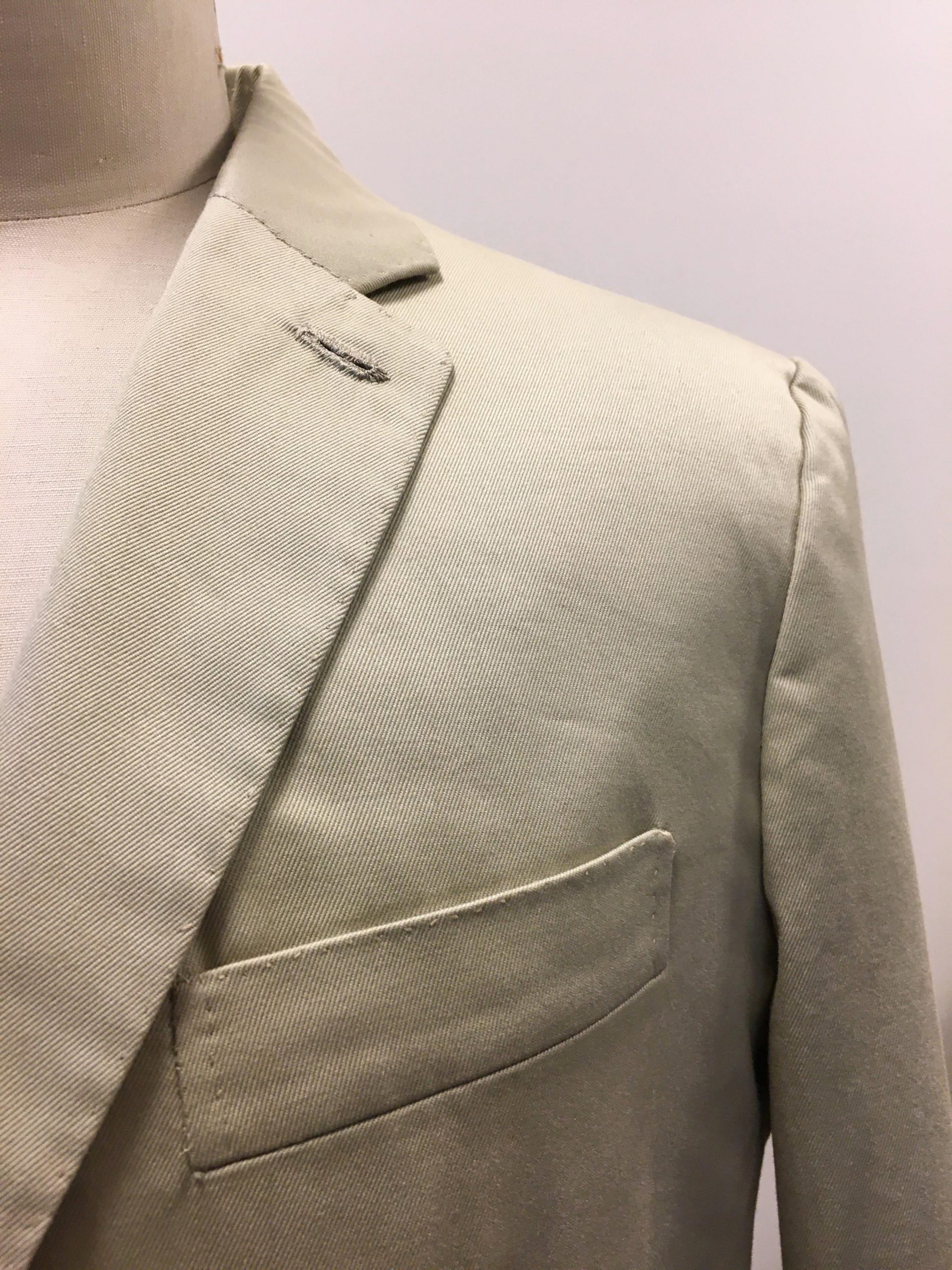
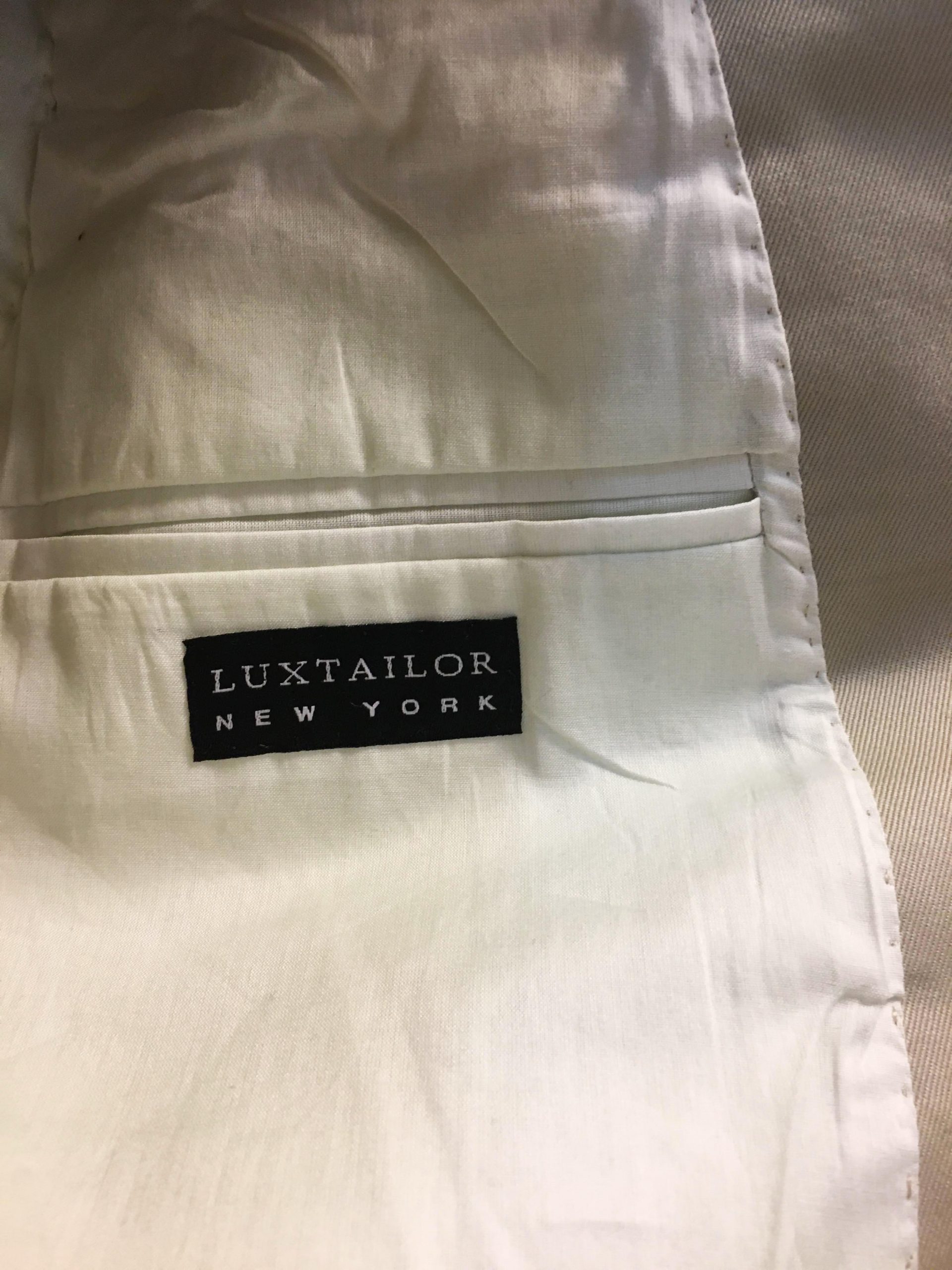
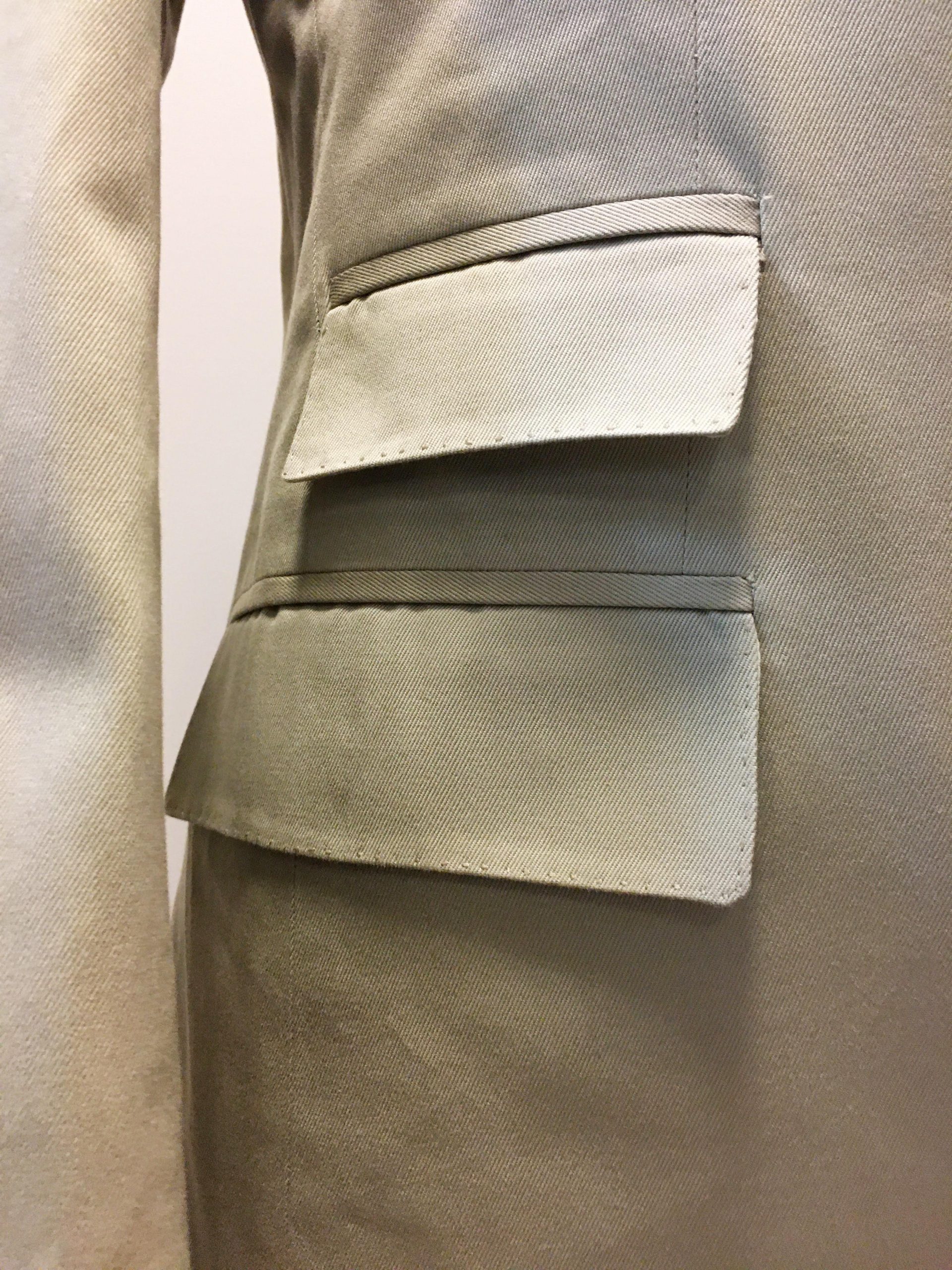
SPECIAL PROMOTION
Order a Custom Suit for $2,500 & Up and have One Custom Shirt included with the purchase.
Call or Email for an Appointment
Phone: 212-759-6004
Email: info@luxtailor.com

Named as a top tailor in New York City by the Hollywood Reporter, Luxtailor is located on the Upper East Side, in the center of the shopping district of New York City (68th & Madison Avenue).
We have the pleasure of working with a variety of designers brands, showrooms, luxury boutiques, stylists & private clientele. We work with both Men and Women for any custom tailoring, alterations or seamstress services needed.
READ MORE ON OUR BLOG:
Memorial Day Fashion
Summer made an early return and we are thrilled to wear our favorite light weight clothes for a memorable season. With Memorial Day coming around, we think its safe to say that all shades of white are great colors to wear. Here are some ivory pieces to consider....
Happy Mother’s Day
Thinking of doing something special for your Mom for Mother's Day? Why not to revive her favorite garment that's been in the closet for too long? Here we worked on this immaculate jacket by Ralph Rucci that our client loved so much. We were in absolute awe and...
Met Gala Fashion
This year the Met Gala will return back to the first Monday in May on May 2 2022. The theme for this year, In America: An Anthology of Fashion, will be the secondary portion of the exhibition from last year's theme. The exhibition will feature men & women’s...
Ralph Rucci: Innovative Design
Looking back, we worked on some timeless pieces from the American Designer, Ralph Rucci. There is such elegance and extra-ordinary details in fabric manipulation and panel design for each piece. See below for some of the best Ralph Rucci pieces that were worked on...
Fantasy Fashion
Do you dress to be the main character of your own movie? Why not dress like you're living in your own fantasy. From breathtaking tulle gowns to adorned crystal dresses. Here are some looks to inspire your next impulse purchase and make a statement for your next...

